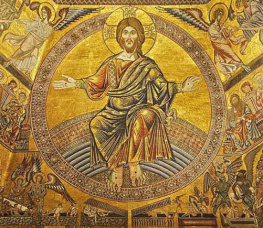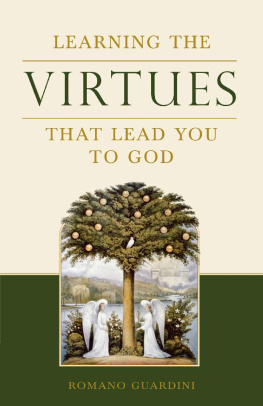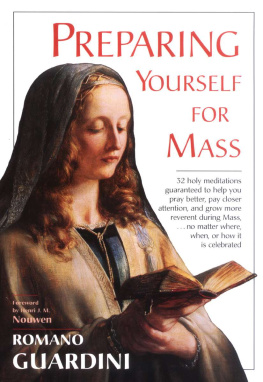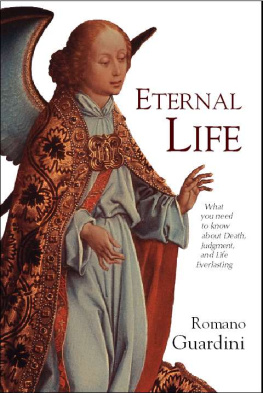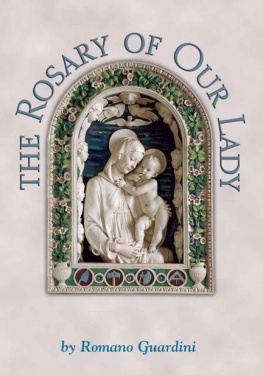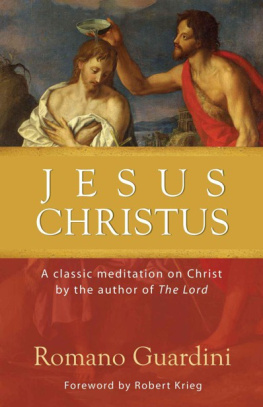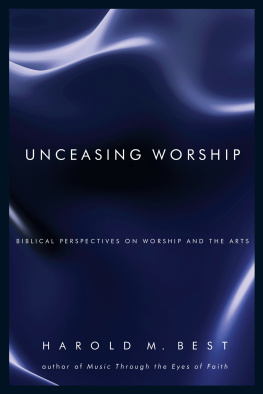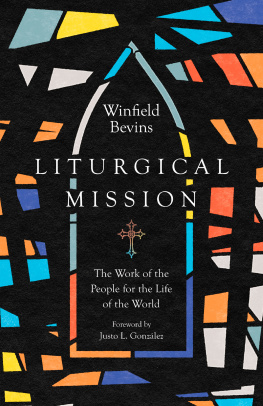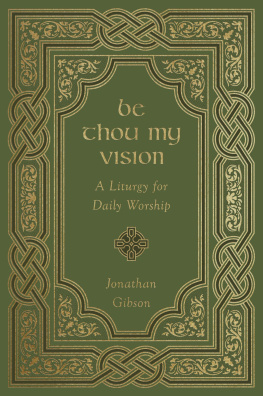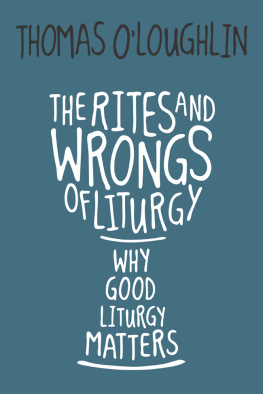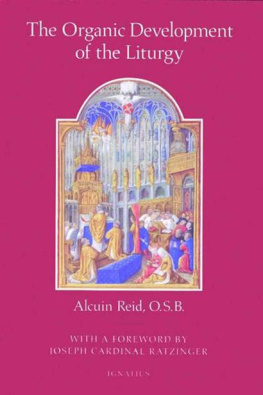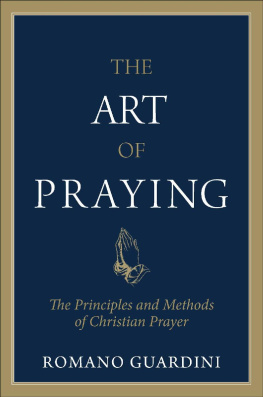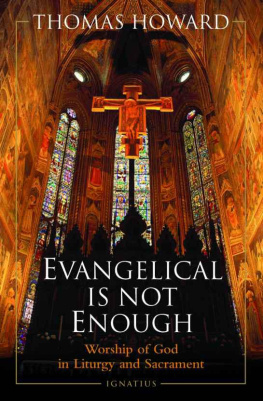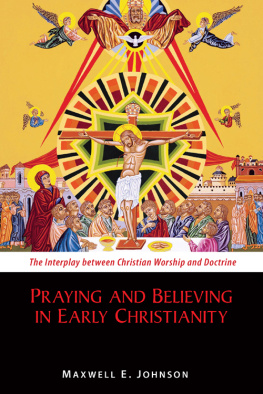Romano Guardini - The Spirit of the Liturgy
Here you can read online Romano Guardini - The Spirit of the Liturgy full text of the book (entire story) in english for free. Download pdf and epub, get meaning, cover and reviews about this ebook. year: 1998, publisher: Herder Herder, genre: Religion. Description of the work, (preface) as well as reviews are available. Best literature library LitArk.com created for fans of good reading and offers a wide selection of genres:
Romance novel
Science fiction
Adventure
Detective
Science
History
Home and family
Prose
Art
Politics
Computer
Non-fiction
Religion
Business
Children
Humor
Choose a favorite category and find really read worthwhile books. Enjoy immersion in the world of imagination, feel the emotions of the characters or learn something new for yourself, make an fascinating discovery.
- Book:The Spirit of the Liturgy
- Author:
- Publisher:Herder Herder
- Genre:
- Year:1998
- Rating:5 / 5
- Favourites:Add to favourites
- Your mark:
- 100
- 1
- 2
- 3
- 4
- 5
The Spirit of the Liturgy: summary, description and annotation
We offer to read an annotation, description, summary or preface (depends on what the author of the book "The Spirit of the Liturgy" wrote himself). If you haven't found the necessary information about the book — write in the comments, we will try to find it.
The Spirit of the Liturgy — read online for free the complete book (whole text) full work
Below is the text of the book, divided by pages. System saving the place of the last page read, allows you to conveniently read the book "The Spirit of the Liturgy" online for free, without having to search again every time where you left off. Put a bookmark, and you can go to the page where you finished reading at any time.
Font size:
Interval:
Bookmark:
THE SPIRIT OF THE LITURGY
ROMANO GUARDINI
TRANSLATED BY
ADA LANE
EDITED BY
Paul A. Ber, Sr.
Veritatis Splendor Publications
et cognoscetis veritatem et veritas liberabit vos
NIHIL OBSTAT: INNOCENTIUS APAP, S.TH.M.; O.P.
CENSOR DEPUTATUS
IMPRIMATUR: + JOSEPH BUTT
VIC. GEN.
WESTMONASTERII, DIE 27A IULII 1935
Originally published by Sheed and Ward, 1935
The contents of The Spirit of the Liturgy by Romano Guardini is in the public domain. However, this version is copyrighted.
Copyright 2012. Veritatis Splendor Publications.
ALL RIGHTS RESERVED.
DEDICATION
AD MAJOREM DEI GLORIAM
For Lynne, Paul, Margaret, Michael, Juan, and Lily
BIOGRAPHICAL NOTES*
Romano Guardini (17 February 1885, Verona 1 October 1968, Munich) was a Catholic priest, author, and academic. He was one of the most important figures in Catholic intellectual life in 20th-century.
Life and work
Guardini was born in Verona, Italy in 1885, but his family moved to Mainz when he was one year old and he lived in Germany for the rest of his life. After studying chemistry in Tbingen for two semesters, and economics in Munich and Berlin for three, he discerned a vocation to the priesthood. He studied Theology in Freiburg im Breisgau and Tbingen, and was ordained priest in Mainz in 1910. He briefly worked in a pastoral position before returning to Freiburg to work on his doctorate in Theology under Engelbert Krebs. He received the doctorate in 1915, for a dissertation on Bonaventure. He completed his Habilitation in Dogmatic Theology at the University of Bonn in 1922, again with a dissertation on Bonaventure. Throughout this period he also worked as a chaplain to the Catholic youth movement.
In 1923 he was appointed to a chair in Philosophy of Religion at the University of Berlin, which he held until forced to resign by the Nazis in 1939. In the 1935 essay Der Heiland (The Saviour) he had openly criticized Nazi mythologizing of the person of Jesus, and emphasized the Jewishness of Jesus. From 1943 to 1945 he retired to Mooshausen, where his friend Josef Weiger had been parish priest since 1917.
In 1945 Guardini was appointed professor in the Faculty of Philosophy at the University of Tbingen, and resumed lecturing on the Philosophy of Religion. Finally, in 1948, he became professor at the University of Munich, where he remained until retiring, for health reasons, in 1962. His ill health prevented him playing any active role in the Second Vatican Council.
Romano Guardini died in Munich on 1 October 1968. He was buried in the priests cemetery of the Oratory of St Philip Neri in Munich. His estate was left to the Catholic Academy in Bavaria that he had co-founded.
Reputation and influence
Guardini's books were often powerful studies of traditional themes in the light of present-day challenges, or conversely examinations of current problems as approached from the Christian, and especially Catholic, tradition. He was able to get inside such different worldviews as those of Socrates, Plato, Augustine, Dante, Pascal, Kierkegaard and Nietzsche, and make sense of them for modern readers.
His first major work, Vom Geist der Liturgie (The Spirit of the Liturgy), published during the First World War, was a major influence on the Liturgical Movement in Germany, and so ultimately on the liturgical reforms of the Second Vatican Council.[1] Pope Paul VI offered to make him a cardinal in 1965, but he respectfully declined.
As a philosopher he founded no school, but his intellectual disciples could in some sense be said to include Josef Pieper, Luigi Giussani, Felix Messerschmid, Heinrich Getzeny, Rudolf Schwarz, Jean Gebser, and Joseph Ratzinger (now Pope Benedict XVI). Even Hannah Arendt and Iring Fetscher were favourably impressed by his work. He had a strong influence in Central Europe; in Slovenia, for example, an influential group of Christian socialists, among whom Edvard Kocbek, Pino Mlakar, Vekoslav Grmi and Boris Pahor, incorporated Guardini's views in their agenda. Slovak philosopher and theologian Ladislav Hanus was strongly influenced in his works by Guardini, whom he met personally, and promoted his ideas in Slovakia, writing a short monograph.[2] In 1952, Guardini won the Peace Prize of the German Book Trade.
The 1990s saw something of a revival of interest in his works and person, reflected in the reissuing of several of his books in the original German and in English translation. In 1997 his remains were moved to the Sankt Ludwig Kirche, the University church in Munich, where he had often preached.
Guardini's book, The Lord, published in English translation by Henry Regnery Publishing in the late 1940s, remained in print for decades and, according to Henry Regnery, was "one of the most successful books I have ever published."[3] The novelist Flannery O'Connor thought it "very fine" and recommended it to a number of her friends.[4]
Notes
1) Robert Anthony Krieg, Romano Guardini: A Precursor of Vatican II. University of Notre Dame Press, 19972) Hanus, Ladislav. Romano Guardini: Myslite a pedagg storoia. L, Bratislava, 19943) Regnery, Henry S., Memoirs of a Dissident Publisher, Publisher: Regnery Gateway Inc., Lake Bluff, Ill., 19854) Flannery OConnor, The Habit of Being. Letters, edited by Sally Fitzgerald. Vintage Books, 1980*From http://en.wikipedia.org/wiki/Romano_Guardini
CONTENTS
1. THE PRAYER OF THE LITURGY
AN old theological proverb says, "Nothing done by nature and grace is done in vain." Nature and grace obey their own laws, which are based upon certain established hypotheses. Both the natural and the supernatural life of the soul, when lived in accordance with these principles, remain healthy, develop, and are enriched. In isolated cases the rules may be waived without any danger, when such a course is required or excused by reason of a spiritual disturbance, imperative necessity, extraordinary occasion, important end in view, or the like. In the end, however, this cannot be done with impunity. Just as the life of the body droops and is stunted when the conditions of its growth are not observed, so it is with spiritual and religious life--it sickens, losing its vigor, strength and unity.
This is even more true where the regular spiritual life of a corporate body is concerned. Exceptions play a far greater part, after all, in the life of the individual than in that of the group. AS soon as a group is in question, concern is immediately aroused with regard to the regulation of those practices and prayers which will constitute the permanent form of its devotion in common; and then the crucial question arises whether the fundamental laws which govern normal interior life--in the natural as in the supernatural order--are in this case to have currency or not. For it is no longer a question of the correct attitude to be adopted, from the spiritual point of view, towards the adjustment of some temporary requirement or need, but of the form to be taken by the permanent legislation which will henceforth exercise an enduring influence upon the soul. This is not intended to regulate entirely independent cases, each on its own merits, but to take into account the average requirements and demands of everyday life. It is not to serve as a model for the spiritual life of the individual, but for that of a corporate body, composed of the most distinct and varied elements. From this it follows that any defect in its organization will inevitably become both apparent and obtrusive. It is true that at first every mistake will be completely overshadowed by the particular circumstances--the emergency or disturbance--which justified the adoption of that particular line of conduct. But in proportion as the extraordinary symptoms subside, and the normal existence of the soul is resumed, the more forcibly every interior mistake is bound to come to light, sowing destruction on all sides in its course.
Next pageFont size:
Interval:
Bookmark:
Similar books «The Spirit of the Liturgy»
Look at similar books to The Spirit of the Liturgy. We have selected literature similar in name and meaning in the hope of providing readers with more options to find new, interesting, not yet read works.
Discussion, reviews of the book The Spirit of the Liturgy and just readers' own opinions. Leave your comments, write what you think about the work, its meaning or the main characters. Specify what exactly you liked and what you didn't like, and why you think so.

